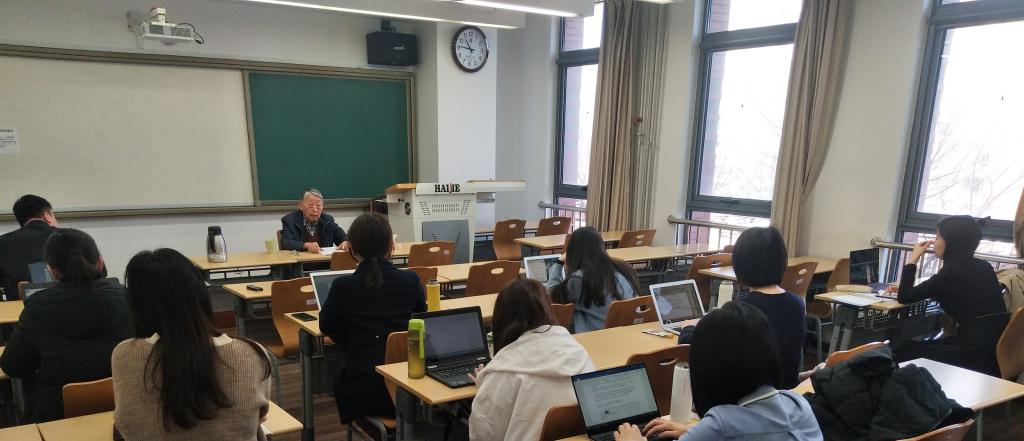At 10 o'clock on March 21, 2019, the 354th Global Human Rights Forum series was held at A209, Research Building, China University of Political Science and Law. Professor Chen Shiqiu, an adjunct professor at the Institute of Human Rights of the China University of Political Science and Law, an expert of the United Nations Committee on Economic, Social and Cultural Rights, and a member of the Public Diplomacy Advisory Committee of the Ministry of Foreign Affairs, came to our school to give a wonderful lecture to the students entitled "The Uncertain Future of Human Rights Treaty Organization Reform".
First of all, Professor Chen introduced the basic knowledge of human rights treaty bodies. The human rights treaty bodies are committees that oversee the implementation of core international human rights treaties and are composed of independent experts with recognized abilities in the field of human rights. There are currently 10 human rights treaty bodies that form the basic pillar of the international human rights protection system and greatly enhance the protection of human rights. However, the development of the treaty body system is also facing challenges. These challenges include: the failure of some States parties to fully comply with their reporting obligations, the serious backlog of national reports and individual communications, the lack of State party opinions in concluding observations, and the inconsistent understanding of treaties between state parties and general comments, partial bias in some committees, long-term resource constraints in treaty bodies, and insufficient coordination among treaty bodies.
Subsequently, Professor Chen introduced the process of reform of human rights treaty bodies.
In 1989, the Secretary-General of the United Nations appointed an independent expert to study on ways to promote the long-term effective functioning of human rights treaty bodies.
In 2002, the Secretary-General of the United Nations recommended to the UN General Assembly based on the report of the independent expert that committees should develop a coordinated approach to activities and standardize the various reporting requirements. In addition, States parties should be allowed to prepare a single report summarizing their compliance with all international human rights treaties.
From 2006 to 2009, OHCHR has taken a number of measures on the reform of human rights institutions, including: follow-up procedures for the periodic reporting system, NGOs’ participation in the whole process of reporting, and improved visibility of individual communications procedures.
In 2014, the United Nations General Assembly, based on many of the High Commissioner’s proposals, adopted resolution 68/268 on strengthening the treaty body system, including: to streamline reporting procedures and list of issues and to limit the number of issues、to provide and update common core documents、to strengthen the dialogue between treaty bodies and States parties, to make concluding observations more concise, to strengthens treaty body transparency, to limit the number of reports and to increase the time resources of meetings to reduce the backlog of reports and to limit the functions of chairpersons.
The United Nations General Assembly requested the Secretary-General of the United Nations to submit a report on progress in the implementation of resolution 68/268 every two years. The United Nations General Assembly will review the effectiveness of all measures in 2020 to ensure its sustainability. Where appropriate, the UN General Assembly may also take further action to strengthen and enhance the effective functioning of the treaty body system.
Finally, Professor Chen patiently answered the questions of the students. This lecture was successfully concluded with the enthusiastic applause of the students.

Written and translated by Jia Zichen